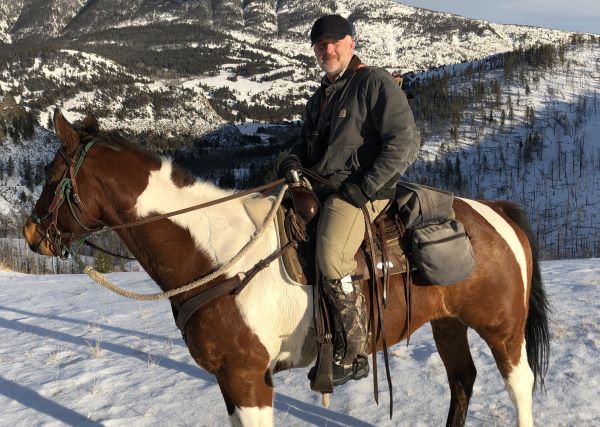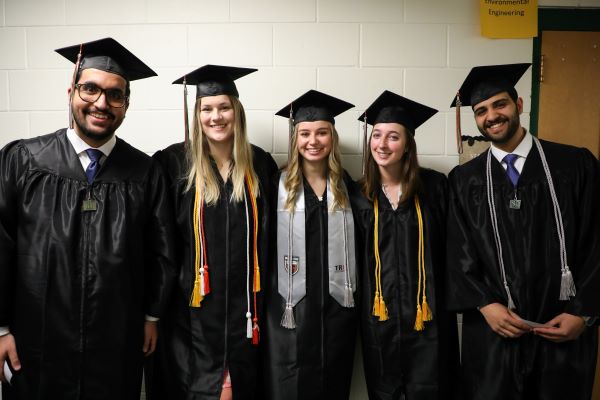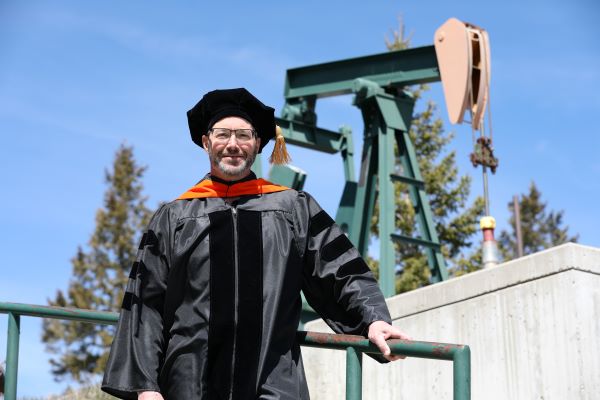Interdisciplinary M.S. from Montana Technological University helped wildlife biologist advance in career

When you ask Brent Lonner (M.S. Interdisciplinary Studies, 2006) why his work as a wildlife biologist matters, he has a great answer.
“This career is certainly one of those that becomes a lifestyle rather than just a job. The longer I've been in this field of work, the more passionate and interested I get,” Lonner said. “I truly appreciate and enjoy the opportunity to intimately engage with natural resource management. Having kids places added value in what and why I do the work I and many others do. In a world of ever-increasing technology and urban type lifestyles, the ability to connect with the natural world in many different ways is increasingly important for many to maintain a sense of unity, harmony, and interconnectedness with all living things. It connects us to and reminds us that humans are part of a larger ecosystem, and connecting with nature can take many forms. Research has shown that connecting with nature has many benefits. I find my small role in all this important to maintain and/or improve our natural resources for not only the benefit of all living wild things, but for future generations of people. “
Lonner grew up around wildlife research and management because his father also spent his career in the field. Lonner earned his bachelor of science in fish and wildlife management from Montana State University Bozeman in 1999. In 2001, he began work through Montana Tech conducting longitudinal research studies on small mammals about hantavirus prevalence under the direction of Dr. Richard Douglass, former biological sciences department head.
“After assisting this work for approximately three years, additional funding was secured for ongoing and additional research focused on hantavirus,” Lonner said. “Through this work and additional funding, an opportunity opened up to develop a graduate thesis and degree. Knowing that I wanted to pursue a career in wildlife biology and the value of the graduate degree to obtain this goal, I jumped on the opportunity. Dr. Douglass proved to be an invaluable mentor in providing me this opportunity to obtain this education/experience through the additional funding and the rest is history.”
Lonner’s degree focused on wildlife disease ecology. When he graduated from Montana Tech in Spring 2006, he worked one season as a technician on a grizzly bear research project for Montana FWP before being offered a full-time position as a wildlife biologist for the agency. Lonner has stayed in the position ever since. He lives in Fairfield with his wife, Della, and two children, Devin and Mia. Lonner was named Biologist of the Year for 2023 by the Montana Chapter of the Wildlife Society, an organization that consists of his peers.
Lonner says his experience at Montana Tech helped set him up for success.
“The graduate degree was a cooperative program combining course work completed at the University of Montana in Missoula, and thesis field work through Montana Tech,” Lonner said. “The degree provided valuable experience and education to better prepare me for a professional career in natural resource management, conservation and/or research.”
Lonner has advice for people considering making wildlife biology their career.
“Obtain experience and education,” Lonner said. “Both go hand in hand. Higher education is certainly not for everyone, but to me, it provides the opportunity to learn a lot about core values, life skills, and tools you can carry with you no matter what you do in life. Balancing that with 'real life' situations through work experience helps to define what sort of interests one has and ideally what type of career to pursue, short- or long-term. Ultimately, a person's time on earth to make a difference is quite limited and work becomes a significant part of life so choosing a career that makes one happy is important, especially if it can also make a positive impact on society.”
Montana Tech’s Graduate School Enrollment Director Jesse Taylor says the Interdisciplinary Sciences degree is quite different from those at other universities. The degree is tailored so students can study multiple disciplines to meet their individual needs. Students choose multiple faculty to be in their graduate committee, so that they may draw from multiple perspectives. The result is a unique interdisciplinary experience.
“Everything is done on the front end of the program,” Taylor said. “The student will find a faculty member at Montana Tech whose interests align to be their advisor, and they will create a program from start to finish. They sit down with the dean to get approval, and then we start the admissions process. It is very project-driven.”
Taylor can help students interested in the master’s degree in Interdisciplinary Studies get connected with an advisor. To inquire, reach out at 406) 496-4781 or jtaylor7@mtech.edu.



